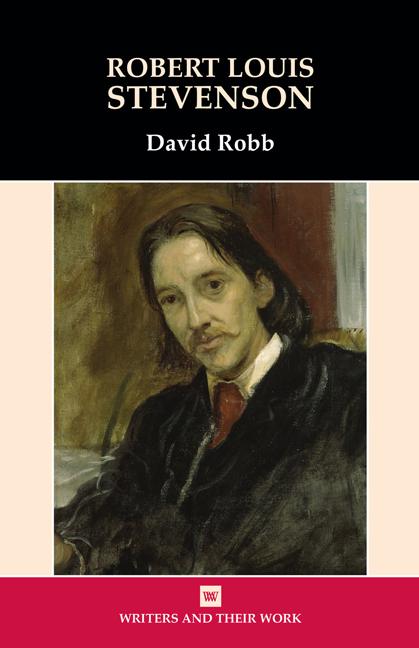Book contents
- Frontmatter
- Dedication
- Contents
- Acknowledgements
- Biographical Outline
- Abbreviations and References
- 1 Introduction: Travels With and Without a Donkey
- 2 ‘A brilliant and romantic grace’
- 3 ‘So easily the master of us all’
- 4 ‘Voices in the Darkness’
- 5 ‘Under the wide and starry sky’
- Notes
- Select Bibliography
- Index
4 - ‘Voices in the Darkness’
- Frontmatter
- Dedication
- Contents
- Acknowledgements
- Biographical Outline
- Abbreviations and References
- 1 Introduction: Travels With and Without a Donkey
- 2 ‘A brilliant and romantic grace’
- 3 ‘So easily the master of us all’
- 4 ‘Voices in the Darkness’
- 5 ‘Under the wide and starry sky’
- Notes
- Select Bibliography
- Index
Summary
The phrase was Henry James's, in a letter to Stevenson of 21 October 1893 (Maixner 440–1). Full of praise for Catriona, he nevertheless regretted what he felt as the absence of visual description in the novel. ‘The one thing I miss in the book is the note of visibility – it subjects my visual sense, my seeing imagination, to an almost painful underfeeding’, he says, and he finds himself, as he reads, ‘in the presence of voices in the darkness.’ Stevenson responded to this in a letter of early December of that same year (Mehew 565–6), agreeing with James's perception but scarcely apologetic:
’Tis true, and unless I make the greater effort – and am, as a step to that, convinced of its necessity – it will be more true I fear in the future. I hear people talking, and I feel them acting, and that seems to me to be fiction. My two aims may be described as –
1st. War to the adjective.
2nd. Death to the optic nerve.
When he wrote this he had already completed and sent off what was to be his last finished work, The Ebb-Tide. What remained were unfinished fragments, because a year later, almost to the day, he would suddenly die. His letter looks to a future which might have been. In it, he is asserting what he knows are his strengths, in the invented actions of his characters, and in how they, and his narrators, ‘speak’. When necessary, he can provide rich enough scenic descriptions, as his two great tales from the South Seas show. His last works have each an especially strong sense of place, in fact, but it derives primarily from the characters themselves, from their words and deeds, and from the stories told about them, rather than from extensive descriptions.
The sense that his writings written after he left Britain for the Americas in 1887, so memorable and full of creative energy, are ‘late’ or ‘last’ works should be resisted, and one's consciousness that darkness would soon engulf their author's voice should be kept at bay. It is only in retrospect that death appears to engulf the voices in his stories; though they were among the last things he was to write, there is nothing elegiac about them, nothing of the supposed serenity or calm maturity of old age. They just stop, in mid-sentence.
- Type
- Chapter
- Information
- Robert Louis Stevenson , pp. 95 - 139Publisher: Liverpool University PressPrint publication year: 2014



